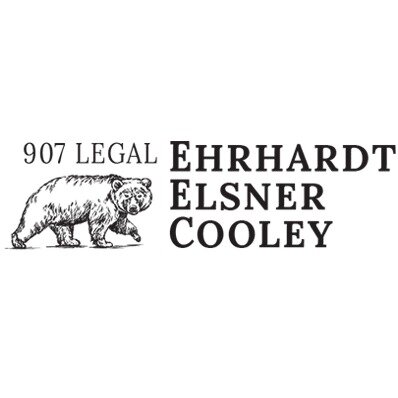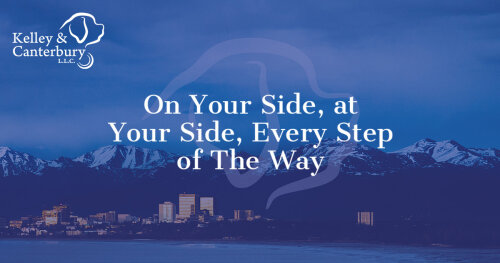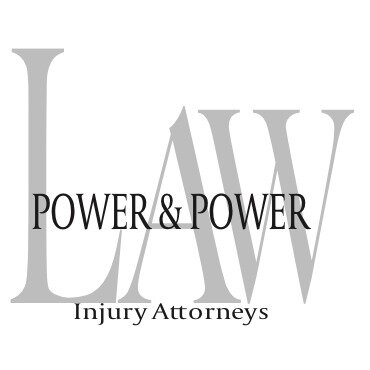Best Construction Accident Lawyers in Alaska
Share your needs with us, get contacted by law firms.
Free. Takes 2 min.
Or refine your search by selecting a city:
List of the best lawyers in Alaska, United States
About Construction Accident Law in Alaska, United States
Construction sites are among the most dangerous workplaces in Alaska, with risks ranging from falls and equipment malfunctions to exposure to hazardous materials. Construction accident law covers legal rights and responsibilities after an injury occurs on a construction site. In Alaska, injured workers may be entitled to workers' compensation benefits, and in some cases, may have grounds for additional legal claims against third parties or employers depending on the circumstances of the accident.
Why You May Need a Lawyer
If you have suffered injuries in a construction accident in Alaska, it can be difficult to understand your legal rights or to determine who is responsible for your damages. A lawyer can help guide you through the process of filing for workers' compensation, pursuing potential third-party claims, and ensuring you receive maximum compensation. Common situations requiring legal assistance include:
- When your workers' compensation claim is denied or delayed
- If your injuries are severe, life-altering, or result in permanent disability
- If hazardous working conditions or safety violations contributed to your injury
- When there is uncertainty about which parties are liable (for example, subcontractors or equipment manufacturers)
- If you face retaliation or wrongful termination after reporting the injury
Local Laws Overview
Construction accident cases in Alaska are influenced by state-specific laws and regulations. Key points include:
- Workers' Compensation: Most Alaskan employers are required to carry workers' compensation insurance, which provides benefits for medical expenses and lost wages regardless of fault. However, accepting these benefits may limit your ability to sue your employer directly.
- Third-Party Liability: You may pursue legal action against third parties, such as equipment manufacturers, subcontractors, or property owners, if their negligence played a role in your accident.
- Reporting Requirements: Injuries must be reported to your employer as soon as possible, typically within 30 days, to preserve your right to benefits.
- Statute of Limitations: There are deadlines for filing workers' compensation claims and personal injury lawsuits. In Alaska, personal injury claims generally must be filed within two years of the date of injury.
- Comparative Negligence: Alaska follows a pure comparative fault system. Your compensation may be reduced by your percentage of fault, but you can still recover damages even if you are mostly at fault.
Frequently Asked Questions
What should I do immediately after a construction accident?
Seek medical attention right away, even for minor injuries. Report the incident to your supervisor or employer, document the scene if possible, and gather witness contact information. These steps help protect your health and your legal rights.
Who is eligible for workers' compensation in Alaska?
Most employees injured on the job in Alaska are eligible for workers' compensation, regardless of who was at fault. Exceptions may include independent contractors and some volunteers.
Can I sue my employer for a construction accident?
In general, accepting workers' compensation benefits means you cannot sue your employer. However, legal action may be possible if your employer intentionally caused harm or if a third party contributed to your injury.
How long do I have to file a workers' compensation claim?
In Alaska, you must notify your employer as soon as possible, ideally within 30 days of the accident. There are additional deadlines for filing paperwork with the Alaska Workers' Compensation Board.
What types of damages can I recover in a construction accident case?
Workers' compensation covers medical expenses, some lost wages, and disability benefits. If you pursue a third-party claim, you may also recover for pain and suffering, loss of future earning capacity, and other damages not covered by workers' compensation.
Do I need a lawyer for a workers' compensation claim?
You are not required to have a lawyer, but legal representation is often beneficial, especially if your claim is denied, your injuries are severe, or you suspect employer retaliation.
What if I was partially at fault for my injury?
Alaska's comparative fault law allows you to recover compensation even if you were partly at fault, though your recovery may be reduced by your percentage of fault.
Are there special protections for undocumented workers?
Undocumented workers are generally entitled to workers' compensation benefits in Alaska, but they may face unique challenges. Legal counsel can help protect their rights.
Can I be fired for reporting a construction accident or filing a claim?
Alaska law prohibits employers from retaliating against employees for reporting workplace injuries or filing workers' compensation claims. If you are fired or face harassment, you may have additional legal remedies.
How do I choose the right construction accident lawyer in Alaska?
Look for attorneys with experience in construction accident and workers' compensation law, positive client reviews, a track record of results, and local knowledge. Consultations are often free, allowing you to find the right fit before proceeding.
Additional Resources
If you are seeking more information or assistance, consider contacting these organizations:
- Alaska Workers' Compensation Board - Oversees claims and disputes for injured workers.
- Alaska Department of Labor and Workforce Development - Provides information on workplace safety, regulations, and workers' rights.
- Occupational Safety and Health Administration (OSHA) Alaska Office - Handles workplace safety violations and investigations.
- Alaska Bar Association Lawyer Referral Service - Can connect you with licensed attorneys experienced in construction accident cases.
- Local Legal Aid Groups - May offer free or low-cost legal advice for those who qualify.
Next Steps
If you have been involved in a construction accident in Alaska, consider these next steps:
- Seek immediate medical attention for your injuries and follow all treatment recommendations.
- Report your injury to your employer as soon as possible and complete any required forms.
- Collect evidence and documentation related to your accident, such as photographs, witness statements, and medical records.
- Contact the Alaska Workers' Compensation Board or an experienced construction accident attorney to discuss your case and understand your rights.
- Consult with a lawyer before accepting any settlement to ensure you are receiving fair compensation for your injuries and losses.
Lawzana helps you find the best lawyers and law firms in Alaska through a curated and pre-screened list of qualified legal professionals. Our platform offers rankings and detailed profiles of attorneys and law firms, allowing you to compare based on practice areas, including Construction Accident, experience, and client feedback.
Each profile includes a description of the firm's areas of practice, client reviews, team members and partners, year of establishment, spoken languages, office locations, contact information, social media presence, and any published articles or resources. Most firms on our platform speak English and are experienced in both local and international legal matters.
Get a quote from top-rated law firms in Alaska, United States — quickly, securely, and without unnecessary hassle.
Disclaimer:
The information provided on this page is for general informational purposes only and does not constitute legal advice. While we strive to ensure the accuracy and relevance of the content, legal information may change over time, and interpretations of the law can vary. You should always consult with a qualified legal professional for advice specific to your situation.
We disclaim all liability for actions taken or not taken based on the content of this page. If you believe any information is incorrect or outdated, please contact us, and we will review and update it where appropriate.
Browse construction accident law firms by city in Alaska
Refine your search by selecting a city.















